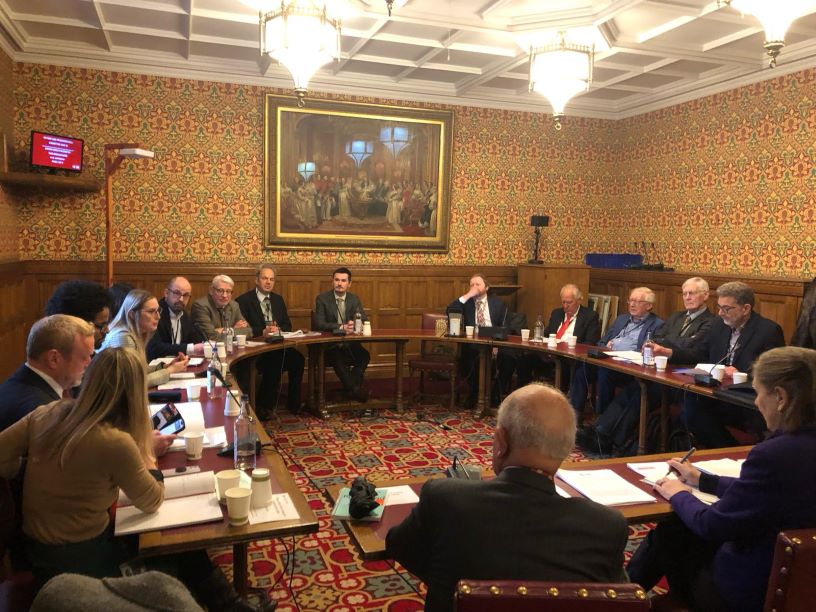Quakers cited in Lords debate on right to boycott bill
Quakers in Britain's “powerful" briefings on the anti-boycott bill were recognised in the House of Lords this week during its second reading.

The government's Economic Activity of Public Bodies (Overseas Matters) Bill passed its second reading in the House of Lords without a vote as is tradition.
But peers spoke almost unanimously against it, with criticisms ranging from “badly-drafted" to an “attack on democracy."
And Quakers in Britain's verbal and written briefings on the bill were mentioned five times during the debate, with three peers quoting directly from the written briefing.
Lord Paul Boateng said: “I draw to the attention of the House the proper concerns of the Society of Friends - the Quakers - about this Bill in its helpful briefing to us:
[QUOTE-START]
I draw to the attention of the House the proper concerns of the Society of Friends
- Lord Paul Boateng
[QUOTE-END]
'We know from experience that grassroots action can be an effective, peaceful way to bring about lasting positive change.
'In severely limiting the ethical decisions that public bodies can make, we are concerned that the Bill restricts Quakers and other people of faith from putting their faith into action by campaigning on matters of conscience, particularly at the local authority level where opportunities for citizens to influence democratic decisions are greater.'"
Following an MP briefing last month, Billy Vaughan, public affairs officer for Quakers in Britain, briefed peers ahead of this week's debate alongside Amnesty International, Friends of the Earth and others.
By specifically granting permanent immunity to Israel and its illegal occupation of Palestinian territories, the legislation serves to legitimise human rights abuses, he told parliamentarians.
The government says its bill will ensure public bodies follow UK foreign policy in their purchasing, procurement, and investment decisions.
In reality, it will force universities and local authorities to ignore ethical issues when investing in or procuring services from foreign companies complicit in human rights abuses or environmental degradation abroad.
Writing in the Morning Star, Labour peer Pauline Bryan said: “The very powerful briefing paper from the Quakers points out that… 'This Bill gives the government the power to control which violations of international law public bodies can protest and which ones they must keep silent about.'"
The bill will now continue its progress through the House of Lords.